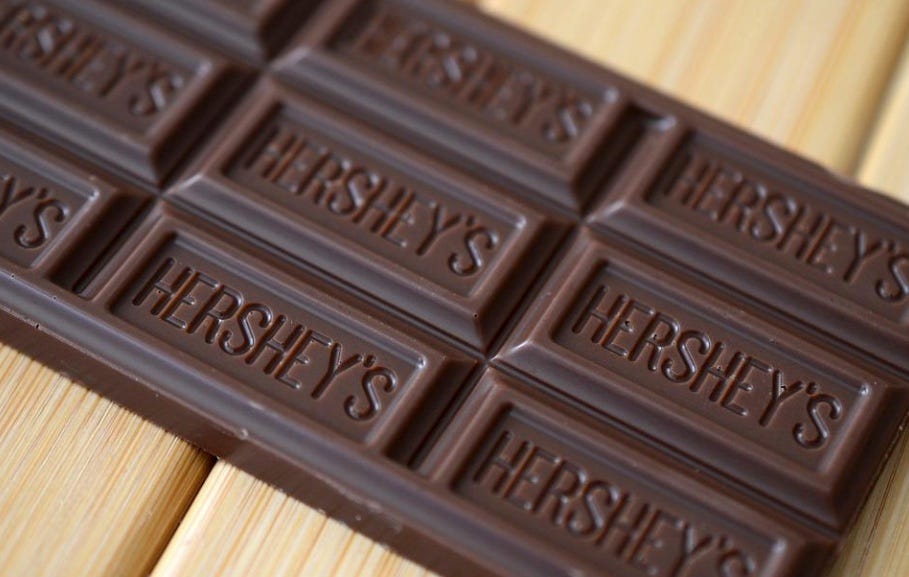Sweet! Hershey's says it is kissing pollution goodbye
Corn husks among the ways the confectionery maker is reducing emissions.
(A native of England, Matthew Diebel is a veteran journalist who has worked at NBC News, Time, USA Today and News Corp., among other organizations. Having spent his childhood next to one of the world's fastest bodies of water, he is particularly interested in tidal energy.)
Do you feel guilty when you munch into a Hershey bar, crunch on a KitKat or get your lips around a Hershey’s Kiss?
Well, there’s some sweet news for your conscience: the Pennsylvania-based company just announced it has reduced its primary emissions by nearly half in the last four years.
Hershey (HSY) achieved a 48% reduction of its Scope 1 and Scope 2 greenhouse gas (GHG) emissions,” boasted a news release, “significant progress toward its 2030 goal of a 50% absolute reduction, compared to a 2018 baseline. The company also reported an 18% reduction in Scope 3 emissions, on track to reach its goal of a 25% absolute reduction in Scope 3 emissions by 2030, compared to a 2018 baseline.”
So how did they do it? In part through rice husks. Yup, earlier this year they canceled the coal at their India factory and replaced it with waste from rice production.
Closer to home, says their ESG report, the company has invested in three solar farm projects, with the first coming online in 2021 and the other two scheduled to generate power in this year and in 2024. Meanwhile, they have bought zero-emissions credits while the solar farms are constructed.
The stock is up 8.8% so far in 2022.
Apart from pollution — though that chocolate smell from its factories is very pleasant — Hershey is also under pressure to confront issues over child labor and other work practices abroad as well as destruction in forests caused by cocoa growing. In that regard, the company has, through a strategy called Cocoa for Good, committed to invest $500 million over the next eight years, mostly in West Africa, to combat what it calls a ”cycle of poverty” in the communities where its raw materials are grown.
Not yet guilt-free, but getting there.

